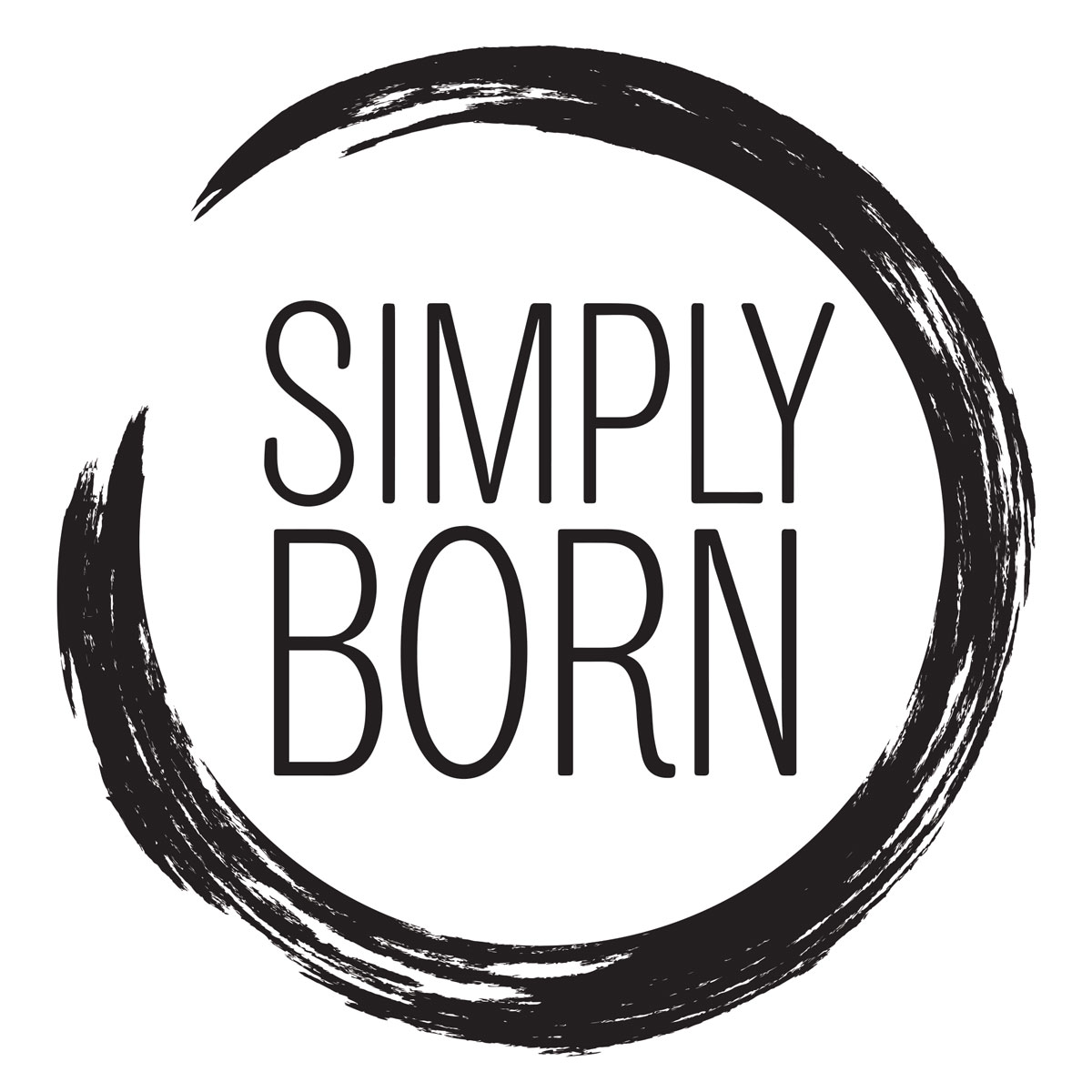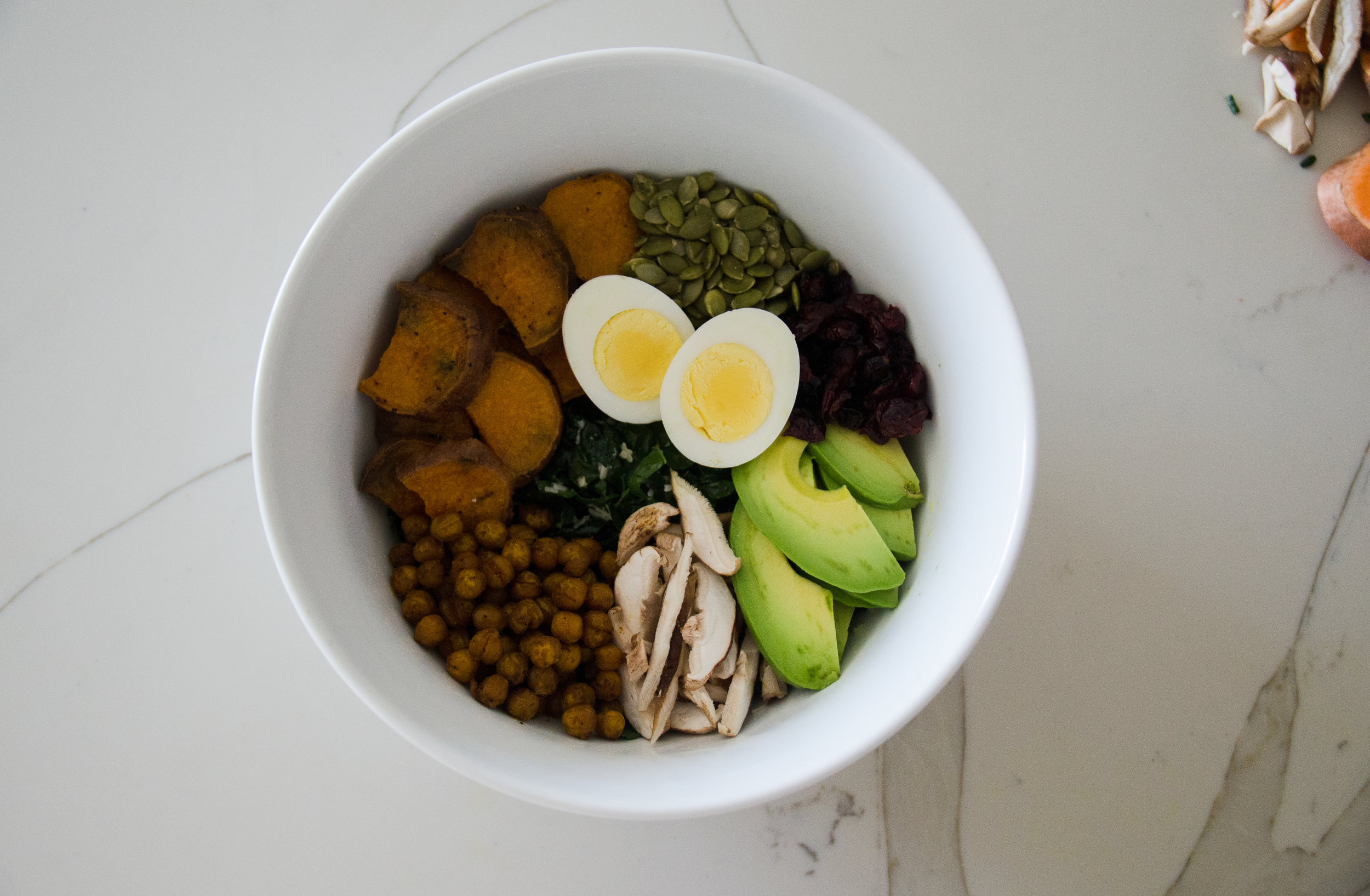Nourishing a Pregnancy on a Plant-Based Diet
“All children should have the basic nutrition they need to learn and grow and to pursue their dreams, because, in the end, nothing is more important than the health and well-being of our children.”
– Michelle Obama
If the above is true, then without a doubt we can begin this journey from early pregnancy onward, bonus points if we can improve our nutrition before conceiving. An argument could be made that pregnancies have been carried to term successfully even on the poorest of diets, so why bother with eating organic, whole foods at all? The answer is why not. Why not nourish our body and nourish the early days of our child's life.
Midwife, Audrey, has been eating a plant-based diet for five years; keep reading for clinical recommendations from a care provider who balances both the perspective of being a plant lover as well as an expert in low-risk childbearing.
How does nutrition differ in pregnancy as a vegan, vegetarian, and omnivore (someone who eats both plant and animal foods)?
Our nutrition counselling in pregnancy looks similar for those on a plant-based diet as with an omnivorous diet, with the added component of suggesting alternative food sources to reach the same nutritional needs. We also recommend nutritional supplementation when needed or necessary. From a midwifery perspective we frequently see those eating an omnivorous diet carry pregnancies to term without major complications or concerns. Those on plant-based diets have higher incidence rates of certain conditions during childbearing. That being said, with dedication and mindfulness to eating a balanced diet, pregnancies and pregnant parents can maintain good health.
We see concerns both with adequate protein, fat, and carbohydrate intake; as well as vitamin and mineral intake. This can occur with any type of diet. The body requires roughly an additional 300 calories daily to maintain a healthy pregnancy, this typically looks like 2200 - 2600 calories a day. This can vary based on individual requirements. It is essential for a healthy pregnancy to be eating 80-100 g of protein, 90 - 150 g of carbohydrates, and 130 g of healthy fats daily (complex carbohydrates are preferred to simple carbohydrates).
What are the biggest concerns and common nutritional deficiencies observed during pregnancy on a plant-based diet?
Some of the main differences observed between omnivorous vs. plant-based pregnancies include:
Decreased fertility
Anemia
Inadequate fat and protein intake
Undernutrition of the pregnant parent
Specific vitamin or mineral deficiencies
Unhealthy placenta
Low birth weight
Lower amount of brown adipose tissue (cute baby belly fat) which can lead to long term issues
Reach out to your midwife or care provider for further information about these listed concerns if you have any questions.
Key vitamins & minerals for a healthy plant-based pregnancy.
Iron
Dried fruit, like cranberries are a great source of iron.
During pregnancy, regardless of diet, we commonly see dips in iron levels in the blood; this happens in part because your blood volume expands quicker than your body can make new red blood cells. While we do see this phenomenon in most pregnancies, it is much more severe in our clients with plant-based diets. Iron deficiency in pregnancy increases the risk of many pregnancy related conditions which put the parent and baby at risk, such as: miscarriage, pre-eclampsia, preterm labour, bleeding in the postpartum, infections, and postpartum depression. The current recommended amount of iron is 27 mg/day during pregnancy. There are two types of iron: heme (animal) and non-heme (plant) iron. Keep in mind that heme iron is absorbed at about 25% efficiency, while non-heme iron is absorbed at about 2-13%. Because non-heme is absorbed less efficiently, it is important to consume more than the daily recommended intake to ensure adequate iron stores in the body. A plant-based diet restricts people to eating only non-heme iron. There are several plant components that decrease the amount of iron our body is actually able to absorb and use, these are: phytates, calcium, caffeine, polyphenols, and high fiber. While vitamin C, citric acid, and organic fruit acids act as helpers to absorb iron. Vitamin C + Iron = happy, healthy body.
Recommended Sources: Dried fruits, whole grains, sweet potato, nuts, beans, legumes, blackstrap molasses, fortified grain products, eggs, and meat alternatives.
Vitamin D
Eighty percent of Amercians have a Vitamin D deficiency, knowing this we recommend that all pregnancies be supported with Vitamin D supplementation, particularly for those in northern regions. Vitamin D helps support pregnancy and fetal skeletal mineralization, when severely deficient it can lead to congenital rickets in babies. Vitamin D supplements are most often sourced from lanolin (a wax from sheep, goats and other animals with wool), on a vegan diet you can find supplements sourced from lichen (a plant similar to moss that often grow on rock faces). Clients are also encouraged to spend time outside for 15 minutes daily to encourage natural production of vitamin D from the sunshine. The recommended daily intake in pregnancy is 1000-2000 IU. But depending on blood levels you may need up to go upwards of 5000 IU per day.
Recommended Sources: Mushrooms, fortified soy products as well as non dairy milks, dairy milk, dairy cheeses, egg yolk.
Folate
Folate is critical in helping with early fetal development and prevention of neural tube defects. It is also an important player in blood cell health and DNA synthesis of the pregnant parent. We recommend supplementation of MTHF-folate rather than folic acid due to the high prevalence of MTHFR gene variants at 43% in our population which can render supplementation ineffective*. The recommended intake of folate is 600 mcg/day.
*The MTHFR gene helps break down amino acids in the body. When there is a variance in this gene the body is not able to convert certain nutrients in the body, for example, folate, which can lead to several major issues during fetal development. If you want to know more about testing for MTHFR gene variance there is a wealth of knowledge online to get you started.
Recommended Sources: Fortified soy products, dark leafy greens, broccoli, beets, brussel sprouts, potato, avocado, okra.
Vitamin B12
Essential to fetal, brain, and nervous system development, and methylation. Deficiency in vitamin B12 is an issue both during pregnancy as well as breastfeeding, this is because if you are deficient in B12 your breastmilk will not contain B12 either. This can lead to infant B12 deficiency, which can cause developmental delays as well as growth issues in the baby. The recommended daily intake of B12 is 23 mcg/day for a healthy pregnancy; be sure to use methylcobalamin for the same reason we discussed folate vs. folic acid.
Recommended Sources: Oysters, fortified non-dairy milk, dairy milk, cheeses, fortified cereals, meat alternatives, fortified nutritional yeast, miso and other fortified and fermented soy products, sauerkraut, and shiitake mushrooms.
Omega - 3 Fatty Acids
Omega-3 fatty acids is a group of fatty acids that your body cannot create itself, and must be obtained from your diet. There are three main types of omega-3: ALA, EPA, and DHA. ALA is mainly found in plants foods, while DHA and EPA are mainly found in animal foods, primarily in seafood and algae.
EPA and DHA are the most critically important omega-3’s especially from conception into the first two years of life due to their heavy role in fetal brain development, particularly brain cell formation. Between the two, DHA has a bigger role in developing cell membrane function in the brain and the eyes.
ALA is mostly used as an energy source, but can be converted to EPA or DHA in very low levels. ALA is the primary source of omega-3 on plant-based diets. Please be aware that ALA, found in seed based oils, is not efficiently used by the body and unfortunately does not impact fetal brain development as the amount absorbed is so low.
Adequate levels of EPA and DHA through diet and supplementation during pregnancy result in higher rates of term babies, higher Omega-3 levels in the infant, decreased preterm birth rates, and decreased fetal and infant morbidity.
Recommended Sources of Omega-3 (EPA & DHA): Eggs, algae-based DHA.
Recommended Sources of Omega-3 (ALA): flaxseed, flaxseed oil, chia, canola oil, soybean oil, soy products, walnuts, walnut oil.
Omega-6 Fatty Acids
Omega-6 is also important for the body; there are four main types of omega-6: LA, ARA, GLA, and CLA. While each serves individual purpose in the body, the primary roles are: gene regulation, immune health, and blood clotting.
The ideal ratio of omega-6 to omega-3 is 3:1. Because many plant foods are high in omega-6 this ratio is often skewed in those with plant-based diets. Imbalanced ratios can lead to higher rates of developmental delays in the first 6 months in babies along with other health concerns . The recommended daily intake of omega-3 in pregnancy is 3.3g/day, and 9.9 g of omega-6 daily.
Recommended Sources of Omega-6: soybean, corn, safflower and sunflower oils, nuts, seeds, eggs.
Zinc
On a plant-based diet it is important to increase your intake of zinc by 50% due to the poor absorption rate from plant based foods. Interestingly, zinc deficiency can cause lifetime issues in newborns and it is believed to also impact multiple generations. Zinc is essential in fetal development and deficiency increases the risk of miscarriage, preterm birth, stillbirth, neural tube defects, low birth weight, and issues with the placenta. Similarly to iron, there are several inhibitors in plant foods that make it challenging for the body to make use of all the ingested zinc. The recommended daily intake of zinc is 17 mg/day, but due to the challenge in absorbing zinc from plant sources it is recommended to consume closer to 25 mg/day.
Recommended sources: Fortified whole grains, fortified and fermented soy products, legumes, beans, nuts and seeds.
Choline
This micronutrient does not get enough attention when discussing prenatal nutrition. It can be considered a sister to folate in the sense that it also is essential to healthy fetal brain development, prevention of neural tube defects, and healthy placental function; it also is essential to methylation. In pregnancy the body requires 450 mg/day of choline, and higher levels for those with MTHFR gene variance; because of this it is highly recommended that those on a plant-based diet eat several eggs daily to meet minimum nutritional requirements.
Recommended sources: Eggs, cruciferous vegetables, legumes, nuts.
Glycine
Glycine supports the growth of the fetal skeleton, internal organs, teeth, hair, skin, and nails. Primarily this is found in animal foods; however, there are a few plant sources of glycine. That being said, the amount of plant foods that you would need to eat to obtain a reasonable amount of glycine is impractical. Glycine is the most prevalent amino acid that is found in collagen, and collagen is the most abundant protein in the human body. At this time there is not a recommended daily intake for glycine, but it is recommended that non pregnant people have roughly 10 g daily, and pregnant values are speculated to be higher due to the increased needs of the growing fetus.
Recommended sources: sesame seed flour, spirulina, sunflower seed flour, pumpkin seeds, nori, watercress, beans, and spinach (listed from most to least in glycine concentration).
Vitamin A
Often overlooked as a critical nutrient in the building of a healthy baby, vitamin A plays a large role in fetal growth and formation. Key functions include: development of heart, eyes, ears, limbs, and immune system. Deficiencies can lead to serious complications in the fetal development of craniofacial structure, limbs, and internal organs. Plant foods contain carotenoids (provitamin A) vs. retinol (preformed vitamin A) which is found in animal foods. The body must convert the carotenoids into retinol in order to use it in the body. On a vegan diet it is nearly impossible to obtain retinol without supplementation, although supplementation should only be done under the guidance of a health care provider as it can be linked to birth defects when consumed in high doses. Existing WHO guidance suggests a dose of up to 10 000 IU vitamin A per day. There is a gene mutation (BCM01) that is prevalent in our population that inhibits the body’s ability to convert carotenoids to functional retinol and can pose further issues when on a strict plant-based diet. Recommended sources retinol: Full fat dairy milk and cheese, eggs, fish.
Sweet potatoes are a great option for Vitamin A!
Recommended sources carotenoids:Pumpkin, sweet potato, tomato, squash, papaya, carrots, spinach, broccoli.
K2
K2 is essential to fetal skeletal mineralization, and K1 is essential to blood clotting and heart health. Primarily sourced from animals, K2 is only found in a few plant foods, the highest concentration being found in natto (please note it is the not the soy itself but the bacteria that is involved in the fermentation process). Vitamin K1 can be converted in the body to K2; however, the body is not able to generate substantial amounts of K2 in this way and cannot be relied upon as a source of K2. The recommended daily intake of vitamin K per day in pregnancy is 90 μg/day.
Recommended sources of K2: natto, eggs yolks, cheese (the harder the better), full fat fermented dairy products
Recommended sources of K1: Dark leafy greens, many garden herbs, fermented soy products.
SimplyBorn recommendations for our plant-based clients, and how you can utilize our reading recommendations despite not adhering to an omnivorous diet.
We recognize the variety of diets our clients have adopted prior to or during pregnancy. While we are happy to provide care to clients on a plant-based diet, we do have strong nutritional recommendations regarding how to maintain a healthy pregnancy, which we expect clients to adhere to.
As part of your care with Simply Born we provide nutritional counselling throughout pregnancy that caters to your specific needs. One of our favourite resources is Real Food for Pregnancy by Lily Nichols; while this resource primarily discusses an omnivorous approach to nourishing a pregnancy, there is certainly wisdom that can be applied to plant-based nutrition as well.
While we work with both vegan and vegetarian clients, we do not consider the following diets appropriate for pregnancy: raw vegan, fruitarianism, macrobiotic diet, high carb - low fat (HCLF) vegan.
For our plant-based clients we frequently will recommend supplementation at some point in pregnancy related to one, or several, of the previously discussed micronutrients. If the midwives of Simply Born feel nutritional needs are not being met we will work with clients to find individualized approaches to managing diet and improving pregnancy outcomes.
What are powerhouse foods we recommend including in your daily regime?
Organic, pasture raised eggs
Dark leafy greens
Full fat fermented dairy products (milk, butter, cheese)
Sprouted grains and legumes
Algae or spirulina
Oysters and or fish (if pescatarian)
High quality prenatal vitamin containing methylated forms of micronutrients
Recipe
The recipe showcased throughout this post can be found below. What I love about this meal is how simple it is to bringing together whole food ingredients in a filling buddha bowl inspired meal. A true rainbow of plant-foods to nourish your body, and your pregnancy.
Ingredients
Lacinato kale, removed from stalk and thinly sliced
¼ cup cranberries
¼ cup pumpkin seeds
3-4 tbsp Parmesan, shredded
One sweet potato, washed and sliced, keep skin on
½ cup chickpeas
One egg, hard boiled
½ cup shiitake mushroom, sliced
Half lemon, juiced
3 tbsp Extra virgin olive oil, divided
One avocado, sliced
Spice blend: cumin, garam masala, salt, smoked paprika, chili powder
Method
Gently toss spice mix, 1 tbsp olive oil and chickpeas in bowl. Toss sweet potato with 1 tbsp olive oil and salt in separate bowl.
Start by baking sweet potato and chickpeas together at 400F for 20 minutes, remove from oven and flip, continue baking for 10 minutes.
Dressing: mix half a lemon with 1 tbsp olive oil, salt and pepper.
Wash and slice kale, place in large bowl and massage with olive oil dressing and parmesan cheese.
Top with cranberries, pumpkin seeds, roasted chickpeas and sweet potato, mushrooms, and avocado. Side with hard boiled egg and a sprinkle of salt.
Article Sources:
Nichols, L. Real Food for Pregnancy: The science and wisdom of optimal prenatal nutrition. 2018.































